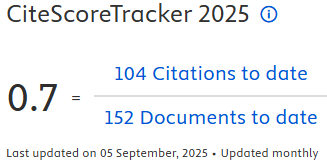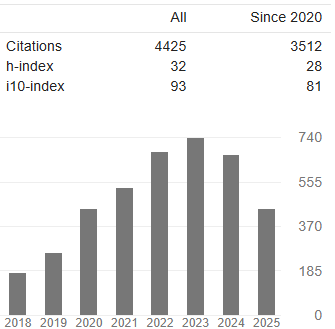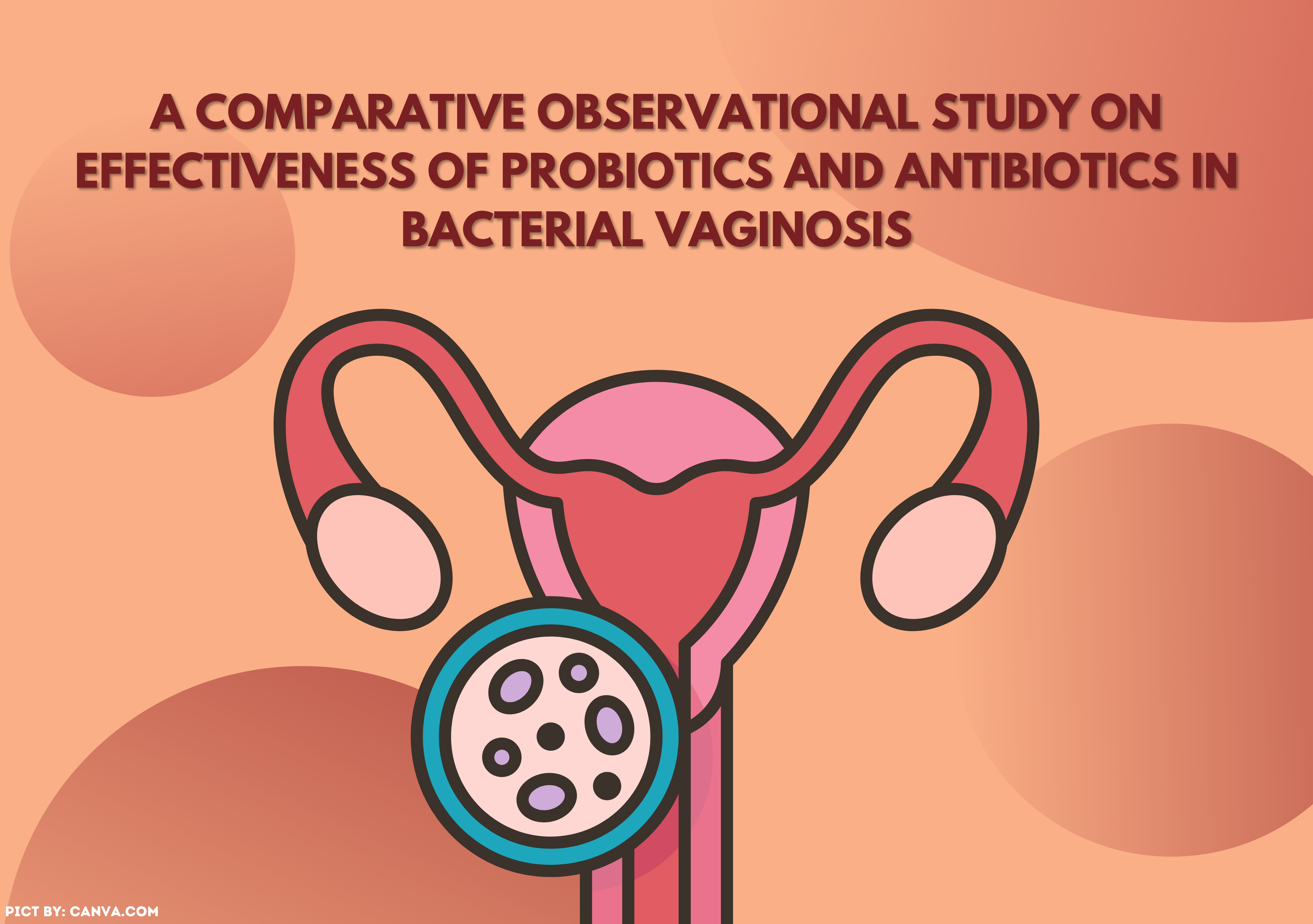IMPROVING KNOWLEDGE OF NON-COMMUNICABLE DISEASE PROGRAM MANAGERS IN TUBERCULOSIS-DIABETES MELLITUS CONTROL AND CARE

Introduction: Indonesia ranks second in the number of TB cases worldwide, accounting for 10% of the total TB cases. In addition, Indonesia ranks fifth in the number of DM cases worldwide. However, the integration of TB and DM disease management programs to ensure safe and quality care in health facilities is generally insufficient. Aims: This study aims to improve the knowledge of NCD program managers regarding TB-DM and their role in TB control and care. Methods: This study used a quasi-experimental design (non-randomized and non-control group) involving all healthcare workers (HCWs) managing NCD programs in Yogyakarta City. The participants were selected from 18 community health centers, 5 hospitals, the Health Office of Yogyakarta City. Prior to and following the training sessions, the knowledge of the participants was assessed. Results: According to the results of the Kruskal-Wallis test, no significant differences in TB-DM knowledge were observed among participants based on age group, length of employment, occupation, and highest level of education. However, following the training sessions, the participants showed a significant improvement in TB-DM knowledge according to the results of the Wilcoxon signed-rank test p = 0.000, with an effect size (r) of 0.57 (95% CI [0.000, 0.113]). Conclusion: Training for NCD program managers has been shown to improve their knowledge about TB-DM and their potential roles. Therefore, it is crucial to conduct continuous capacity-building programs for HCWs. These programs should be supported by policies, systems, and necessary infrastructures to ensure effective implementation of integrated care for TB and other diseases.
Amare, D. et al. (2023) ‘Effectiveness of healthcare workers and volunteers training on improving tuberculosis case detection: A systematic review and meta-analysis', PLoS ONE, 18(3 March), pp. 1–13. https://doi.org/10.1371/journal.pone.0271825
Ariffin, F. et al. (2017) ‘Feasibility of Implementing Chronic Care Model in the Malaysian Public Primary Care Setting', Med J Malaysia, 72(2), pp. 106–112.
Arini, M. et al. (2021) ‘The Cross-Cultural Adaptation for Assessment of Chronic Illness Care Questionnaire Into Indonesian Version', Asia Pacific Journal of Public Health, 33(5), pp. 627–631. https://doi.org/10.1177/10105395211018090
Arini, M., Sugiyo, D. and Permana, I. (2022) ‘Challenges, opportunities, and potential roles of the private primary care providers in tuberculosis and diabetes mellitus collaborative care and control: a qualitative study', BMC Health Services Research, 22(1), pp. 1–14. https://doi.org/10.1186/s12913-022-07612-3
Ayatulloh, D., Nursalam, N. and Kurniawati, N. D. (2021) ‘The Effect of Knowledge Management in Healthcare Services: A Systematic Review', Jurnal Pendidikan Keperawatan Indonesia, 7(1), pp. 84–96. https://doi.org/10.17509/jpki.v7i1.35132
Ayelign, B. et al. (2019) ‘Immunological Impacts of Diabetes on the Susceptibility of Mycobacterium tuberculosis', Journal of Immunology Research. https://doi.org/10.1155/2019/6196532
Baral, M. A. and Koirala, S. (2022) ‘Knowledge and Practice on Prevention and Control of Tuberculosis Among Nurses Working in a Regional Hospital, Nepal', Frontiers in Medicine, 8(February), pp. 1–8. https://doi.org/10.3389/fmed.2021.788833
Basir, M. S. et al. (2019) ‘Operationalization of bi-directional screening for tuberculosis and diabetes in private sector healthcare clinics in Karachi, Pakistan', BMC Health Services Research, 19(1). https://doi.org/10.1186/s12913-019-3975-7
Baxter, S. et al. (2018) ‘The Effects of Integrated Care: A Systematic Review of UK and International Evidence', BMC Health Services Research, 18(1), pp. 1–13. https://doi.org/10.1186/s12913-018-3161-3
Buregyeya, E., Kasasa, S. and Mitchell, E. M. H. (2016) ‘Tuberculosis infection control knowledge and attitudes among health workers in Uganda: A cross-sectional study', BMC Infectious Diseases, 16(1), pp. 1–10. https://doi.org/10.1186/s12879-016-1740-7
Chakaya, J. et al. (2021) ‘Global Tuberculosis Report 2020 – Reflections on the Global TB burden, treatment and prevention efforts', International Journal of Infectious Diseases, 113, pp. S7–S12. https://doi.org/10.1016/j.ijid.2021.02.107
Elgazzar, S. et al. (2023) ‘Improving nurses' knowledge, practice, and self-efficacy regarding caring patients with tuberculosis: A quasi-experimental design', Iranian Journal of Nursing and Midwifery Research, 28(3), pp. 235–243. doi: 10.4103/ijnmr.ijnmr_316_21.
Fazaludeen Koya, S. et al. (2022) ‘Tuberculosis and Diabetes in India: Stakeholder Perspectives on Health System Challenges and Opportunities for Integrated Care', Journal of Epidemiology and Global Health, 12(1), pp. 104–112. https://doi.org/10.1007/s44197-021-00025-1
Golub, J. E. et al. (2019) ‘Diabetes mellitus and tuberculosis in Korean adults : impact on tuberculosis incidence , recurrence and mortality', 23(September 2018), pp. 507–513. https://doi.org/10.5588/ijtld.18.0103
HNG, Nabihah, S. and Nabilah, S. (2018) ‘Knowledge and Practice among Nurses on Management of Tuberculosis in a Teaching Hospital', Medicine & Health, 13(1), pp. 153–164. https://doi.org/10.17576/MH.2018.1301.15
International Diabetes Federation (IDF) (2021) ‘International Diabetes Federation (IDF) Diabetes Atlas 10th Edition'. https://doi.org/10.1016/j.diabres.2013.10.013
Kabasakal, E. and Kublay, G. (2017) ‘Health Education and Health Promotion Skills of Health Care Professionals Working in Family Health Centres', International Journal of Medical Research & Health Sciences, 6(3), pp. 22–28.
Kong, J.-X. et al. (2019) ‘Effectiveness of the Chronic Care Model in Type 2 Diabetes Management in a Community Health Service Center in China: A Group Randomized Experimental Study', Journal of Diabetes Research, pp. 1–12. https://doi.org/10.1155/2019/6516581
Lall, D. et al. (2018) ‘Models of care for chronic conditions in low/middle-income countries: A "best fit” framework synthesis', BMJ
Global Health, 3(6), p. 1077. https://doi.org/10.1136/bmjgh-2018-001077
Maher, J. M., Markey, J. C. and Ebert-May, D. (2013) ‘The other half of the story: Effect size analysis in quantitative research', CBE Life Sciences Education, 12(3), pp. 345–351. https://doi.org/10.1187/cbe.13-04-0082
Main, S. et al. (2022) ‘Knowledge and attitudes towards TB among healthcare workers in Yogyakarta, Indonesia', Public Health Action, 12(3), pp. 133–140. https://doi.org/10.5588/pha.22.0017
Ministry of Health (2011) ‘Breakthrough Towards Universal Access, National Strategy for TB Control in Indonesia 2010-2014', Stop TB, pp. 1–80. https://doi.org/10.5860/CHOICE.41-4081.
Ministry of Health (2018) ‘National Report on Basic Health Research (RISKESDAS)', Lembaga Penerbit Balitbangkes.
Ministry of Health (2020a) National Guidelines For The Medical Management of Tuberculosis.
Ministry of Health (2020b) National Strategy for Tuberculosis Control in Indonesia 2020-2024.
Nicholson, T. et al. (2017) Report and Analysis Toward comprehensive global health care delivery : Addressing the double threat of tuberculosis and diabetes.
Noé, A. et al. (2017) ‘Knowledge, attitudes and practices regarding tuberculosis care among health workers in Southern Mozambique', BMC Pulmonary Medicine, 17(1), pp. 1–7. https://doi.org/10.1186/s12890-016-0344-8
Novita, B. D. et al. (2022) ‘The Risk Perception Of Tuberculosis Infected Diiabetes Mellitus Patients', The Indonesian Journal of Public Health, 17(1), pp. 12–26. https://doi.org/10.20473/ijph.v17i1.2022.12-26
Nyirenda, J. L. Z. et al. (2023) ‘Acceptability and feasibility of tuberculosis and diabetes mellitus bidirectional screening and joint treatment services in Malawi: a cross-sectional study and a policy document review', BMJ Open, 13(1), pp. 1–12. https://doi.org/10.1136/bmjopen-2022-062009
Ogbera, O. A. et al. (2013) ‘Knowledge of diabetes mellitus in tuberculosis amongst healthcare workers in Nigeria', Indian journal of endocrinology and metabolism, 17(4), pp. 704–708. https://doi.org/10.4103/2230-8210.113765
Prakoso, D. A. et al. (2023) ‘Acceptability and feasibility of tuberculosis-diabetes mellitus screening implementation in private primary care clinics in Yogyakarta, Indonesia: a qualitative study', BMC Public Health, 23(1), pp. 1–14. https://doi.org/10.1186/s12889-023-16840-z
Puspitasari, S. T., Roesdiyanto and Rizka, D. M. (2023) ‘Correlation Of Predisposing, Enabling, and Need Factor Of Program Keluarga Harapan Participants Toward Utilizing Primary Healthcare', The Indonesian Journal of Public Health, 18(1), pp. 106–116. https://doi.org/10.20473/ijph.v18i1.2023.106-116
Quaife, M. et al. (2021) ‘Changes in health worker knowledge and motivation in the context of a quality improvement programme in Ethiopia', Health Policy and Planning, 36(10), pp. 1508–1520. https://doi.org/10.1093/heapol/czab094
Republic Indonesia Ministry of Health (2019) Decree of the Minister of Indonesia of the Republic of Indonesia Number HK.01.07/MENKES/755/2019 concerning National Guidelines for Tuberculosis Management Medical Services.
Salam, R. (2016) ‘Expanding the definition of noncommunicable disease', Journal of Social Health and Diabetes, 04(02), pp. 067–070. https://doi.org/10.4103/2321-0656.187990
Salcedo, R. M. (2015) A Staff Development Program: Diabetes and TB Education and Screening., Staff Development Program: Diabetes & Tb Education & Screening.
Salifu, R. S. and Hlongwana, K. W. (2020) ‘Barriers and facilitators to bidirectional screening of TB-DM in Ghana: Healthcare workers' perspectives', PLoS ONE, 15(7 July), pp. 1–12. https://doi.org/10.1371/journal.pone.0235914
Salifu, R. S. and Hlongwana, K. W. (2021a) ‘Exploring the mechanisms of collaboration between the Tuberculosis and Diabetes Programs for the control of TB-DM Comorbidity in Ghana', BMC Research Notes, 14(1), pp. 1–6. https://doi.org/10.1186/s13104-021-05637-1.
Salifu, R. S. and Hlongwana, K. W. (2021b) ‘Frontline healthcare workers' experiences in implementing the TB-DM collaborative framework in Northern Ghana', BMC Health Services Research, 21(1), p. 861. https://doi.org/10.1186/s12913-021-06883-6
Shrestha, A. et al. (2017) ‘Health care workers' knowledge, attitudes and practices on tuberculosis infection control, Nepal', BMC Infectious Diseases, 17(724), pp. 1–7. https://doi.org/10.1186/s12879-017-2828-4
Sulistiyani et al. (2019) ‘Analysis of TB-DM Collaboration Program at the Hospital in Semarang City, Indonesia', E3S Web of Conferences, 125(221), pp. 2017–2019. https://doi.org/10.1051/e3sconf/201912516002.
Sun, H. et al. (2022) ‘IDF Diabetes Atlas: Global, regional and country-level diabetes prevalence estimates for 2021 and projections for 2045', Diabetes Research and Clinical Practice, 183, pp. 1–13. https://doi.org/10.1016/j.diabres.2021.109119
Tadesse, A. W. et al. (2020) ‘Tuberculosis infection control practices and associated factors among healthcare workers in hospitals of Gamo Gofa Zone, Southern Ethiopia, institution-based cross-sectional study', PLoS ONE, 15(9 September), pp. 1–12.
https://doi.org/10.1371/journal.pone.0239159
Ugarte-Gil, C. et al. (2019) Diabetes mellitus among pulmonary tuberculosis patients from four TB - endemic countries: the TANDEM study, Clinical Infectious Diseases. https://doi.org/10.1093/cid/ciz284
Vigenschow, A. et al. (2021) ‘Knowledge, attitudes and practices regarding tuberculosis amongst healthcare workers in Moyen-Ogooué Province, Gabon', BMC Infectious Diseases, 21(1), pp. 1–7. https://doi.org/10.1186/s12879-021-06225-1
WHO (2011) ‘Collaborative framework for care and control of Tuberculosis and Diabetes', WHO.
WHO (2020) Global Tuberculosis Report 2020, WHO. Geneva.
WHO (2022) Global Tuberculosis Report, WHO.
Wilcox, R. R. (2023) ‘Some Results on Estimating a Wilcoxon–Mann–Whitney Measure of Effect Size When There are two Covariates', Sankhya B, 0123456789. https://doi.org/10.1007/s13571-023-00319-3
Wondimu, W. et al. (2021) ‘Health professionals' knowledge and attitude of tuberculosis infection control in Mizan Tepi University Teaching Hospital, Ethiopia', Journal of Clinical Tuberculosis and Other Mycobacterial Diseases, 24, pp. 1–5. https://doi.org/10.1016/j.jctube.2021.100239
Workneh, M. H., Bjune, G. A. and Yimer, S. A. (2016) ‘Assessment of health system challenges and opportunities for possible integration of diabetes mellitus and tuberculosis services in South-Eastern Amhara Region, Ethiopia: A qualitative study', BMC Health Services Research, 16(1), pp. 1–11. https://doi.org/10.1186/s12913-016-1378-6
World Health Organization (2018) Noncommunicable Diseases, Global Action Plan for the Prevention and Control of NCDs 2013-2020. https://doi.org/10.1056/NEJMra1109345
World Health Organization (2023) Global Tuberculosis Report 2023, WHO.
Yogyakarta City District Health Office (2023) ‘Yogyakarta City Health Profile 2023', pp. 1–275.
Zheng, C., Hu, M. and Gao, F. (2017) ‘Diabetes and pulmonary tuberculosis: a global overview with special focus on the situation in Asian countries with high TB-DM burden', Global Health Action, 10(1), p. 1264702. https://doi.org/10.1080/16549716.2016.1264702
Copyright (c) 2024 The Indonesian Journal of Public Health

This work is licensed under a Creative Commons Attribution-NonCommercial-ShareAlike 4.0 International License.
- The authors agree to transfer the transfer copyright of the article to The Indonesian Journal of Public Health effective if and when the paper is accepted for publication.
- Authors and other parties are bound to the Creative Commons Attribution-NonCommercial-ShareAlike 4.0 International License for the published articles, legal formal aspect of journal publication accessibility refers to Creative Commons Attribution-NonCommercial-ShareAlike 4.0 International License (CC BY-NC-SA), implies that:
- Attribution ” You must give appropriate credit, provide a link to the license, and indicate if changes were made. You may do so in any reasonable manner, but not in any way that suggests the licensor endorses you or your use.
- NonCommercial ” You may not use the material for commercial purposes.
- ShareAlike ” If you remix, transform, or build upon the material, you must distribute your contributions under the same license as the original.































